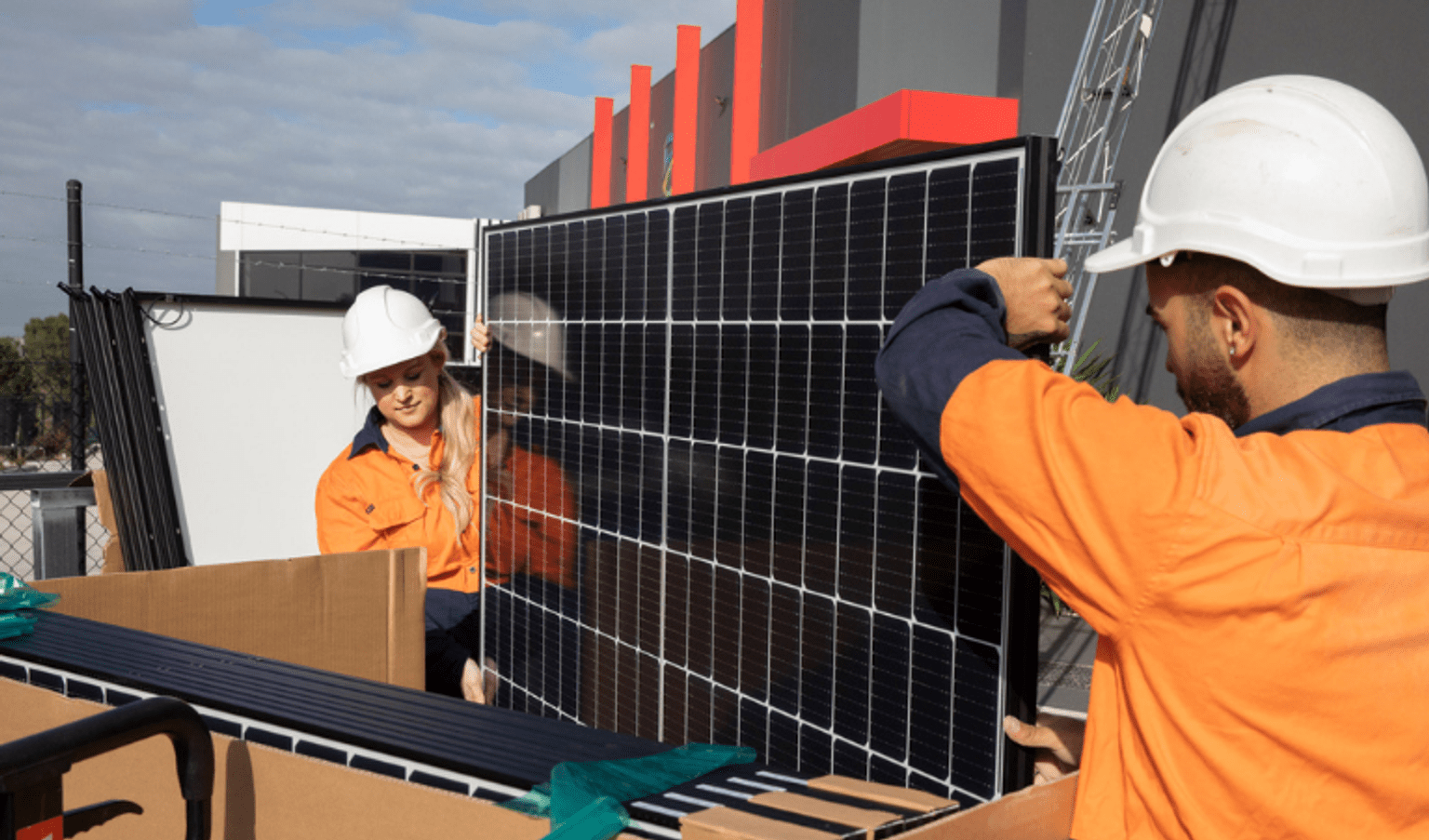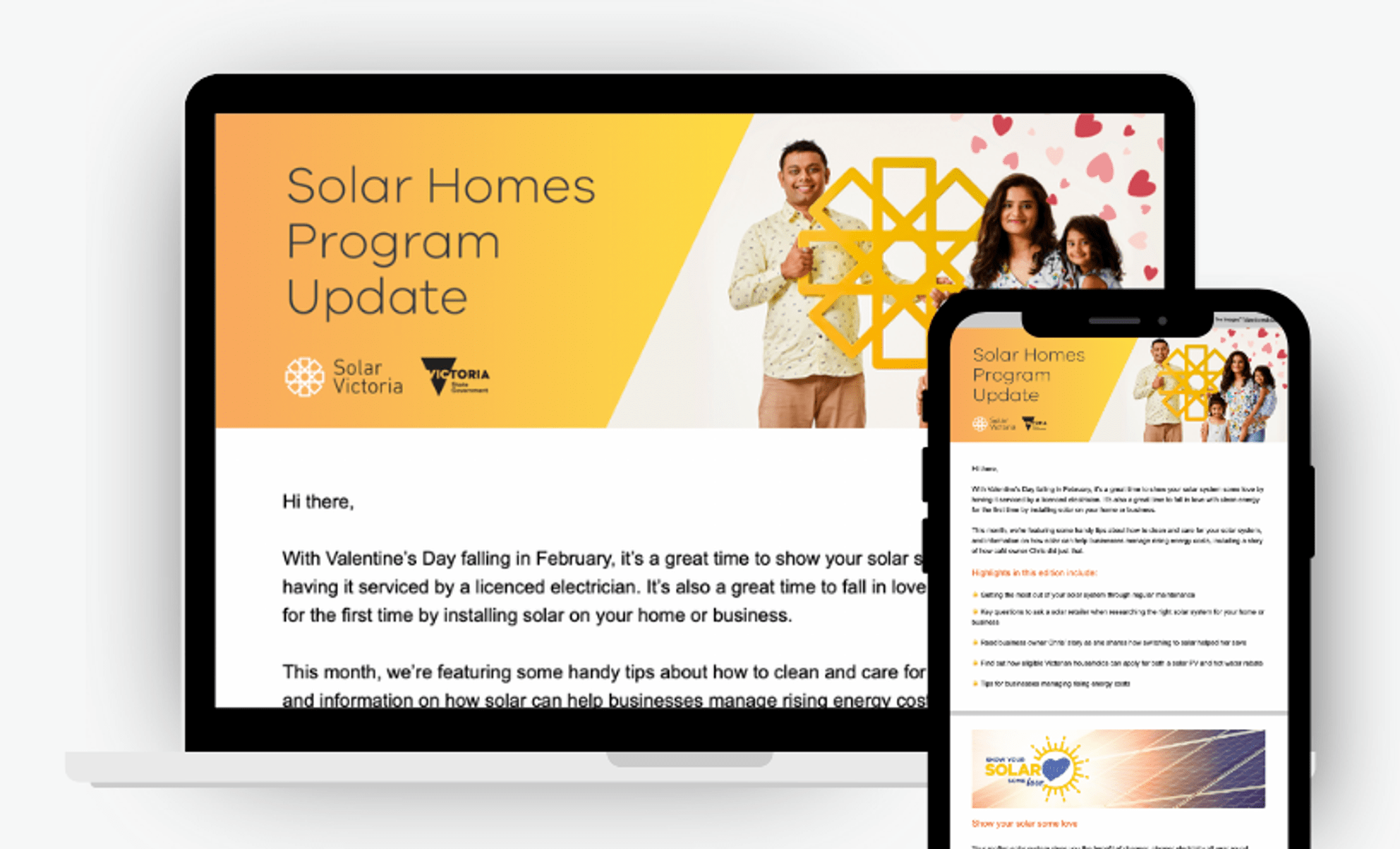All retailers must be authorised and use only accredited installers to participate in the Solar Homes Program. They must also use only eligible products, follow defined processes and work to high standards. This means that you receive a high-quality and safe system that will deliver many years of service.
Retailers – what they are required to do
We require retailers to provide you with clear information, a high standard of after-sales service, and ensure that the solar system meets your household’s needs.
Site, system design, quotes
Your retailer must:
- organise pre-approval from the Distributed Network Service Provider (DNSP) to connect you to the grid
- help you understand what the DNSP is offering you and advise you of any energy export limits
- assess your site for performance, using an accredited solar system designer or equivalent
- provide a written statement that the system installed is complete, functional and installed as per design requirements and the customer quotation.
Warranties
Your retailer must:
- provide a minimum five-year whole-of-system warranty for all eligible systems (including quality of work)
- document the warranty terms and conditions
- give you the details of who to contact if a product fails.
Work to the New Energy Tech Consumer Code
If you are applying for a solar panel (PV) rebate or an interest-free battery loan, your retailer must:
- be a signatory to the New Energy Tech Consumer Code (NETCC) administered by the Clean Energy Council
- have an internal complaint-handling procedure in place to support you.
If you believe your retailer has breached the NETCC, you can submit a complaint to the Clean Energy Council.
Offer finance products that comply with the code
If you are interested in applying for credit through your retailer, they must:
- offer you credit through a provider licensed under the National Consumer Credit Protection Act 2009 (National Credit Act) or an unlicensed provider that has been approved by the Clean Energy Council as meeting minimum consumer protections
- ensure any deferred payment plans (including Buy Now Pay Later arrangements) offered to you to part finance the cost of a solar panel (PV) or solar battery installation meet this NETCC requirement.
For more detail about what we require of retailers, you can read:
- the Solar Victoria Retailer Terms and Conditions which retailers have accepted
- the mandatory requirements they must meet in the Solar Victoria Notice to Market.
We encourage you to work with your retailer in the first instance if you are dissatisfied with your installation or service provided by the retailer.
For information about making a complaint, go to Complaints and how to make one.
Installer requirements
Only installers who are authorised to participate in our program can install an eligible system.
Accreditation
If you are getting solar panels or a battery, your installer must be accredited by Solar Accreditation Australia. Solar hot water or heat pump installers must be accredited by the Building and Plumbing Commission.
Qualifications
Make sure your installer holds an unrestricted (A Grade) electrical licence issued by Energy Safe Victoria, or an Australian-issued equivalent licence that is recognised by Energy Safe. For hot water heat pump systems, your installer must hold a Refrigerant Handling Licence issued by the Australian Refrigerant Council.
Compliance and safety certificates
Your installer must provide you with a Certificate of Electrical Safety for electrical work.
A compliance certificate must be issued where your hot water system has been installed to a total value of $750 or more. This also applies to all gas installations affecting gas pipes. Only a licensed plumber can issue a compliance certificate.
Scan customer QR codes
Your installer must scan your customer QR code on-site on the day of your installation BEFORE starting any work. The QR code step helps to:
- keep everyone safe
- link your installation to an authorised installer
- tell regulators that your installer is about to start and can be inspected for safety.
For more on what we require of installers go to:
- Solar Victoria Installer Terms and Conditions
- mandatory requirements they must meet in the Solar Victoria Notice to Market.
Focus on safety and quality
We work with regulators and peak bodies to continuously improve safety and quality within the solar industry in Victoria.
Inspecting installations
Your installation can be inspected for safety by WorkSafe Victoria, Energy Safe Victoria and the Victorian Building Authority during work and when complete. We also audit five per cent of systems installed under our program. These checks ensure the safety of customers and workers, and help us to understand where retailers and installers could improve.
If you are approached, we encourage you to agree to an inspection for a free safety and quality check with a Solar Victoria appointed auditor.
Find out more about:
- our safety audits for your installation
- how we work with regulators and peak bodies
- what we tell retailers and installers about audits, safety and quality.
Be aware of sales tactics
Authorised retailers must comply with all laws when publicising our rebates and loans. They cannot:
- provide false or inaccurate costs
- mislead you about eligibility for government rebates
- mislead you about connectivity to the grid
- complete applications on behalf of customers
- claim endorsement or affiliation with government and public figures.
Marketing, cold calls and door-to-door sales
We don’t ever allow our rebates and loans to be marketed to new or existing customers using telemarketing and door-to-door sales methods. These are banned under the Solar Homes and Victorian Energy Upgrades (VEU) programs.
You will only receive marketing or sales calls if you have agreed to them, and only within three months of opting into these calls (as per the New Energy Tech Consumer Code).
You could also hear from your retailer or us if a product you have had installed has a fault or is subject to a recall.
Be aware of businesses making unsolicited contact with you. It is possible they are not part of the Solar Homes or VEU programs. Any discounts they are offering could be false and misleading.
If someone makes an unsolicited call or door knocks and claims to be part of the Solar Homes or VEU program, you can report them.
If you would like to report them, please:
- record their details such as the company name or the retailer they represent, the time they approached you and how, what they were offering etc.
- email these details to our Customer Service team at enquiries@team.solar.vic.gov.au
This will help us take action and, where needed, refer them to Consumer Affairs Victoria.
Cooling off period
You have 10 full business days to reconsider agreements made in any circumstances. This gives you time to make sure you have the information needed to make a good choice. It begins on the first business day after the agreement is made. If you cancel the agreement, there’s no penalty.
We monitor for inappropriate or high-pressure marketing and sales tactics and refer conduct that may breach Australian Consumer Law to Consumer Affairs Victoria.
For more about penalties for breaching Australian Consumer Law, go to the Australian Competition and Consumer Commission: fines and penalties.
Protect yourself from scams
Tips to help protect you from inaccurate marketing and high-pressure tactics.
Useful organisations
Updated




